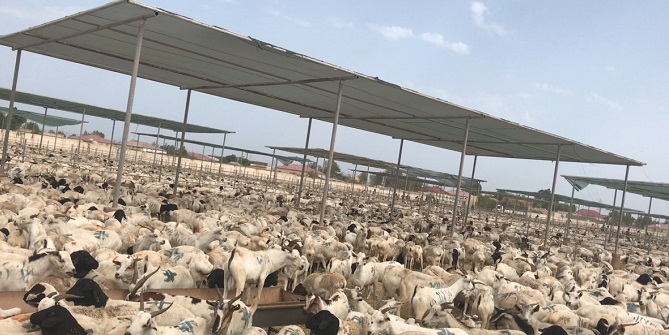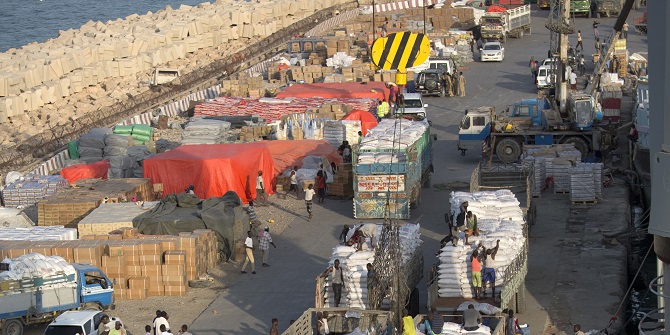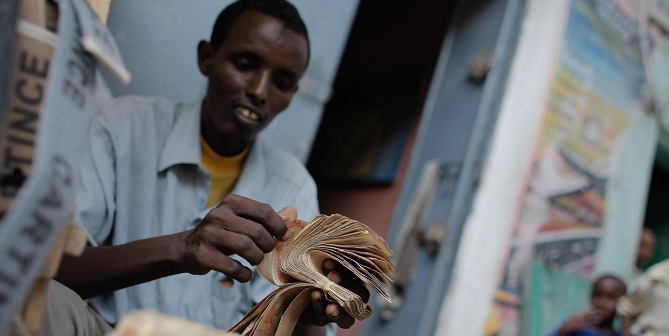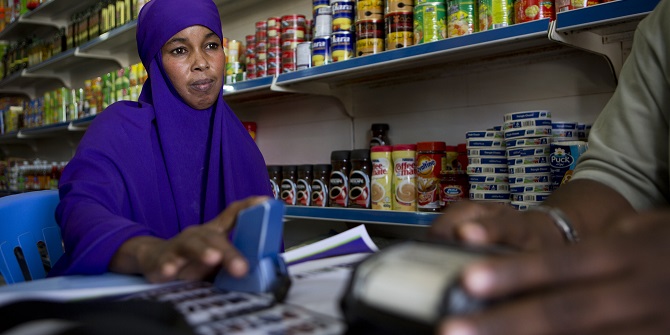This blog is also available to read in Somali.
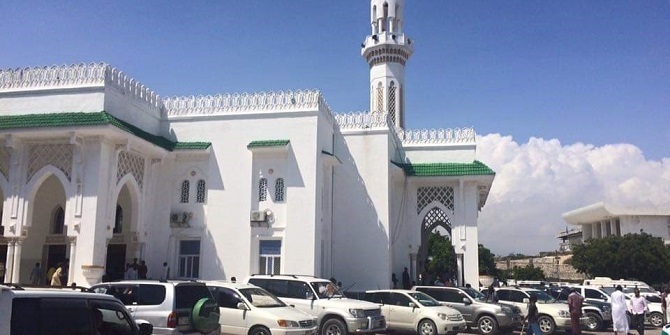
Somalia announced its first case of COVID-19 on 16 March and the disease has been spreading rapidly since. The government has responded in various ways including by providing advice and information, trying to warn of the dangers of this deadly disease but is clearly struggling to get its message across to a population not used to government advice or edicts. Everywhere mosques are full, restaurants are open and markets are as crowded as ever. Not many people seem to take precautions such as using face masks and adopting social distancing. Many seem to be defying the government advice intentionally thinking it is against their religion, when most of government advice does in fact have an Islamic basis. One of the results of this is that the government seems powerless to contain the spread of the disease as it lacks both the resources to treat the ill and the legitimacy to advise the healthy.
In this piece I will try to shed some light on factors that have weakened the government’s ability to use the religious tools at its disposal to inform and advise the wider population.
Religious tools
Almost all Somalis are Sunni Muslims who are devoted to the Sunnah (Prophet Mohamed’s religious practices) and the Quran. This means there was an opportunity to coat the government messages in a religious tone so that the public will follow them from a religious perspective. This is important given the limited powers or other means of persuasion the government can use. The government cannot reach most of the country and cannot administer lockdowns even in government held towns and cities. Islamic literature and history provide many suitable rules, principles and examples that can be used to counter myths and make government measures and messages more acceptable to local audiences. Below are some examples of these principles and rules:
- Lessons from history. The first severe pandemic in Islam took place in Syria Region, known as the Plague of Amwas [Albidyaha wa al nihay, Ibn Kahthir, Volume 7, page 90], where many people died. There is a fitting message from this era from the leader who presided over Syria in 638 AD who is reported to have said: “the plague is like a fire and you are its fuel, so spread [self-isolate] to the mountains, and when it has no fuel it will extinguish” [Tarikh Al Tabari, Volume 7, Page 163]. This is exactly the message the government is trying to convey but as it is conveyed as a message from the Western world, people are ignoring it in defiance.
- The principle of nonmaleficence is well established in Islamic jurisprudence based on verses of the Quran and the Prophet’s sayings (hadith): For example, the principle of “avoiding harm takes precedence over bringing good” [Alashbah, Siyuti, page 87]. This principle alone can be used by the government to decree measures to make sure no one is harmed by COVID-19. This will be a decree supported by Islamic law which many people will adhere to without enforcement.
- The edict to prohibit travel to or leaving an area where there is pandemic. This is an edict based on a direct order from the Prophet of Islam in which he said: ”If you hear of an outbreak of plague in a land, do not enter it; but if the plague breaks out in a place while you are in it, do not leave the place” [Bukhari, 5396], and needs only reinforcing at times like this as it is well known.
- The principle of staying at home. Muslims are ordered to stay in their home at times of calamity or disorder to avoid being harmed or harming others. [Bukhari 6771, Muslim 222]
- The principle of Quarantine, the prophet said “Run away from the leper (the one with contagious ailments) as you would run away from a lion” [Bukhari, 5771].
These principles along with many others are not far from what the government is trying to advise and implement but it is not able to do so because many if not most of the population see the government as an alien government imposed on them that is trying to restrict people’s freedoms, closing mosques and following foreign advice.
Religious based myths
In following the media and social media, as well as in conversations with others, I have observed that many religious based myths are cited when defying government orders. Most of them will not hold water if scrutinised but are still influencing people’s behaviour. These include:
- Widespread reference to ‘Tawakal’, meaning ‘trust in god’. ‘I have trust in god’ is the answer many people in Somalia give when they are asked why they are not taking precautions against COVID-19. This answer can be rejected by the principles of Islam which states, for example, that one should tie one’s camel AND trust god, rather than leaving one’s camel and trusting god. However, these principles need reinforcement from trusted sources.
- Sheikhs (religious leaders) who claim that they have medication for COVID-19. The vast majority of the population do not believe such claims but there is a need to repeatedly refute such claims using trusted religious scholars.
- Government is targeting mosques for closure while teashops, cafes and qat markets are left open, as reported in Somaliland. This gives a mixed message.
- Belief that COVID-19 is non-Muslim disease that does not concern us Muslims.
- We are Muslim who perform ablution five times a day, so instructions to wash hands is not relevant for us as we do it before every prayer; five times a day.
- A fatalistic attitude: ‘I will die only when it is my time, the time that was written, not before that, so why take precautions.’
The above are just few myths and attitudes circulating that all claim a religious basis. The government cannot address these myths on its own. It needs to draw on the help of the many prominent sheikhs who the population trust and will listen to. There is no reason this cannot be pursued although there are difficulties to overcome.
Reach and legitimacy of the Sheikhs
Since the government has a questionable legitimacy in the eyes of many people, especially in relation to such an unprecedented health threat, it could usefully borrow legitimacy from others to achieve its goals. There are large number of religious groups and personalities around the country and in the diaspora, however, there is a small number of sheikhs that can reach the vast majority of the population.
It is Ramadan, the time of the year where most adults are not only fasting but also listening to sheikhs and attending mosques. Mosques in Somalia all have loud-speakers and in urban settings you can hear messages from mosques in every home. People are fasting, abstaining from eating all day without anyone forcing them or watching them. It is a religious obligation reinforced by sheikhs who advise them to do so. If the same sheikhs advise them that it is more important than fasting to make sure that you do not contribute to spreading a disease to other Muslims and to keep yourself out of harm’s way, it is likely that more people will adhere to this message in the same way they are adhering to fasting. Sheikhs also have the ability to recognise when people need to move, particularly the poor who may need to access basic necessities, including food and work, and should consider such needs and the harm that may take place if they are not met through other restrictions.
For this to happen the government needs to win the trust of the respected sheikhs first. This cannot be done in simple meetings or using some government sheikhs that are already known to regurgitate government policies. Many popular sheikhs are well educated, with degrees from modern universities. Some of them are scientists and engineers themselves, who understand well the challenges of the modern world and the mammoth task of tackling COVID-19, in Somalia where there is little heath infrastructure or systems. So, while they are wary of government motives and commitment, they are also well aware of their responsibility. To convince them though, the government would need to involve independent scientists and doctors to explain the reasoning for each measure the government wants to take or to be helped with. As it stands today, many sheikhs around the country are without reliable expert advice regarding COVID-19 and are not sure of what measures to take, so are just continuing with their routines. In Kenya, in contrast, many mosques including the Jamia Mosque in the Central District of Nairobi, popular with Somalis, was closed in mid-March, prior to the wider lockdown, after a meeting between the sheikhs and Muslim health professionals. They all came to the conclusion that it was better for worshippers not to congregate and to perform their prayers in their homes. Compare this to Somalia where no authority has ordered closing mosques (or, in the case of Somaliland, was not able to enforce it) fearing the backlash.
Barriers to overcome
In the old Somali sultanates and political systems, Islam held central stage. No authority could openly break the Islamic law which was the law of the land for centuries, administered by learned religious men who normally enjoyed a degree of autonomy (as reported by Ibn Battuta from Mogadishu in 1331). This continued to be the case until the arrival of colonialism in the late 19th century. From this point on, barriers have been growing between religious leadership and Somali governments. Most of the resistance to colonialism was based on religion and sheikhs led many resistance movements including Sayyid Mohamed Abdille Hasan (the so-called ‘Mad Mullah’), dubbed the father of Somali nationalism. At independence, the governing system continued along the colonial foundations of governance resulting in religious establishment seeing the Somali government as a continuation of the colonial government.
The civil war has removed the formal government and thus returned some power to religious groups and individuals. With the establishment of the current federal system, the international influence has returned and the rift has opened up again, exacerbated by the ‘war-on-terror’ and Al Shabaab. The Western leaning government officials intentionally distance themselves from religious establishment in fear of being labelled Islamist. The religious establishment sees this as the old guard returning to power supported by the same old allies abroad. Religious authorities are caught between a rock and hard place as Al Shabaab is a threat from the other direction. Large numbers of the most popular religious leaders are in fact sympathetic to the need for government as a necessary form of authority. However, there is no firm connection between the two institutions. Further complicating the situation is that religious groups themselves are fragmented just as the governing elites are. There are only a few sheikhs that are listened to by the whole nation as many have a more limited, regional reach, reflecting the fragmented political territories within Somalia. This dispersal makes it difficult for all sides, political and religious, to mend and build relations. Thus, the rift continues quietly.
Concluding remarks
I fear it is too late to limit the spread and impact of this virus, however it is useful to reflect on different forms of authority in Somalia. The government’s options are limited by many factors including a low literacy rate, mistrust of government, lack of capacity of the state and the fact that a large proportion of the population live outside the territories controlled by the government. The government cannot change much about its limited capacity or reach but it can address the barriers created by low literacy and mistrust by working with religious institutions and authorities.
To begin this process, the government would need to convene a series of high-level meetings with religious groups drawing on experts and prominent sheikhs. This requires acknowledging the gap that has emerged between religious groups and the government. Religious groups have been consulted on constitutional and legal matters and this basis can help with the current health crisis. In principle, more specific follow-ups could then be developed drawing on the mobilisation power and reach of the religious networks in the country.
Somalia has good communication networks in the form of telecommunications with wide internet coverage, satellite TV stations and vast number of local radio stations that can be used for consultations, mobilisation and outreach. This can allow the government to work across and reach a large part of the country.
Thanks to Alex de Waal, Ahmed M. Musa, Guhad Adan and Nisar Majid for inputs and contributions.
Note: The CRP blogs gives the views of the author, not the position of the Conflict Research Programme, the London School of Economics and Political Science, or the UK Government.


